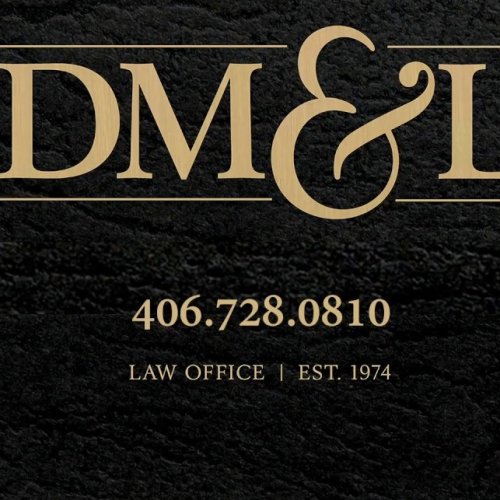Best Arrests & Searches Lawyers in Hamilton
Share your needs with us, get contacted by law firms.
Free. Takes 2 min.
List of the best lawyers in Hamilton, United States
About Arrests & Searches Law in Hamilton, United States
The laws surrounding arrests and searches in Hamilton, follow the Constitution of the United States, particularly the Fourth Amendment. This amendment protects citizens against unreasonable searches and seizures. Local law enforcements are obligated to obtain a warrant prior to conducting a search in most cases. Any evidence found during an unlawful search could be deemed inadmissible in court. It's vital to know your rights and understand the legal implications regarding arrests and searches.
Why You May Need a Lawyer
You may need a lawyer following an arrest or search if: - You've been arrested and are facing criminal charges. - Your home or property has been searched without a warrant, or with a warrant you believe to be invalid. - You believe you were unfairly targeted due to your race, religion, or background. - You believe your Fourth Amendment rights have been violated in any way. Engaging a lawyer ensures you can navigate the legal system more effectively and protect your rights.
Local Laws Overview
In Hamilton, as in other places within the United States, the standard for a legal search is that it must be "reasonable." If an officer has obtained a valid warrant, the search is presumed to be reasonable. However, warrantless searches can be legal under certain circumstances, such as during an arrest or if consent is given. Items in plain view can also be seized without a warrant. These rules apply to traffic stops, pedestrian stops, home searches, and more. If you're unsure about whether a search was legal, consult with a lawyer.
Frequently Asked Questions
What should I do if I'm arrested?
stay calm, be polite and do not resist arrest. Immediately ask for a lawyer and do not answer any questions until your legal representative arrives.
Can I be searched without a warrant?
In certain situations, yes. This includes when you've been arrested, when there's probable cause, when you've given consent, or there exists an emergency situation where people are in immediate danger.
What is probable cause?
Probable cause means that there's a reasonable basis to believe a crime may have been committed and that a search may provide evidence of the crime. It's typically required for a search warrant but can also justify a warrantless search in some cases.
Can I refuse a search if there's no warrant?
Generally, you can refuse a search if there's no warrant or probable cause. However, do so calmly and politely to avoid the accusation of resisting a police officer.
What can I do if my rights were violated?
If you believe your rights were violated during an arrest or search, immediately consult with a lawyer. They can advise you on possible legal recourse.
Additional Resources
The American Civil Liberties Union (ACLU) of Ohio provides a wealth of resources on rights during police encounters. The Federal Public Defender for the Southern District of Ohio can offer assistance in certain qualifying cases. The Office of the Ohio Public Defender also offers representation to those unable to afford a private attorney.
Next Steps
If you need legal assistance concerning an arrest or search, begin by contacting a criminal defense attorney in Hamilton. They can advise you according to your specific situation and help protect your rights. It’s important not to delay seeking legal advice, especially if you're facing potential charges.
Lawzana helps you find the best lawyers and law firms in Hamilton through a curated and pre-screened list of qualified legal professionals. Our platform offers rankings and detailed profiles of attorneys and law firms, allowing you to compare based on practice areas, including Arrests & Searches, experience, and client feedback.
Each profile includes a description of the firm's areas of practice, client reviews, team members and partners, year of establishment, spoken languages, office locations, contact information, social media presence, and any published articles or resources. Most firms on our platform speak English and are experienced in both local and international legal matters.
Get a quote from top-rated law firms in Hamilton, United States — quickly, securely, and without unnecessary hassle.
Disclaimer:
The information provided on this page is for general informational purposes only and does not constitute legal advice. While we strive to ensure the accuracy and relevance of the content, legal information may change over time, and interpretations of the law can vary. You should always consult with a qualified legal professional for advice specific to your situation.
We disclaim all liability for actions taken or not taken based on the content of this page. If you believe any information is incorrect or outdated, please contact us, and we will review and update it where appropriate.








